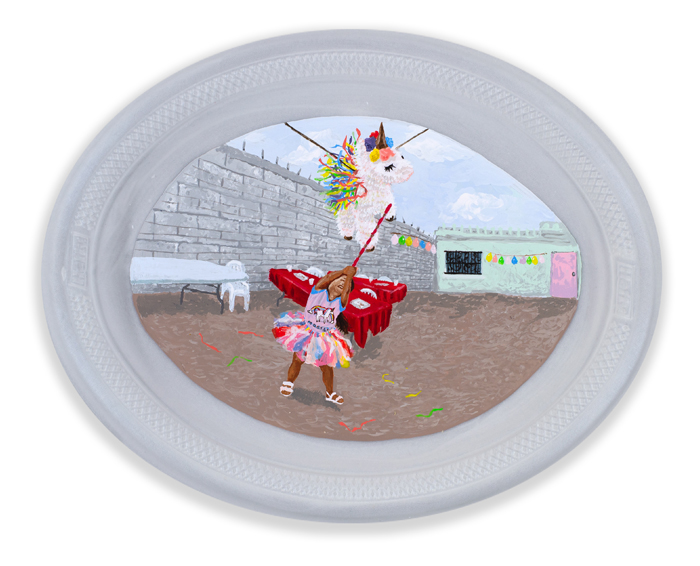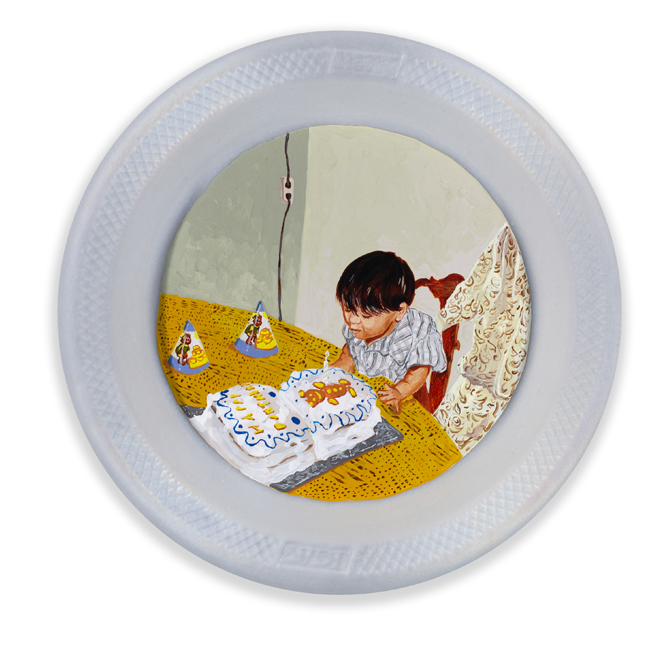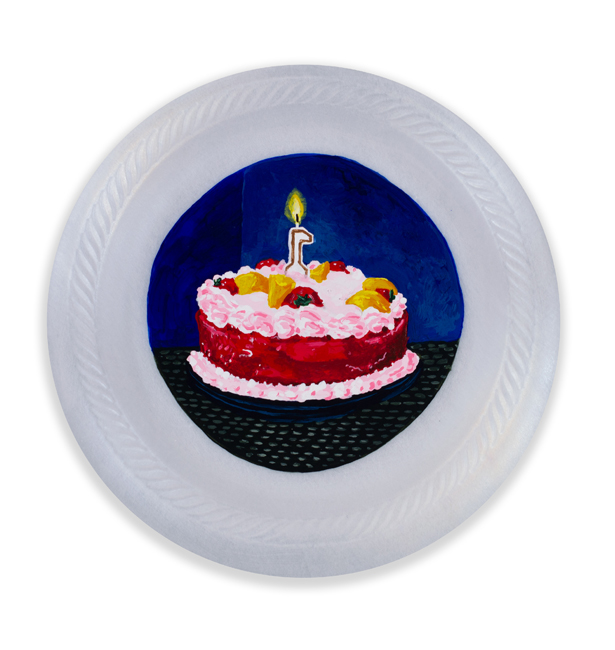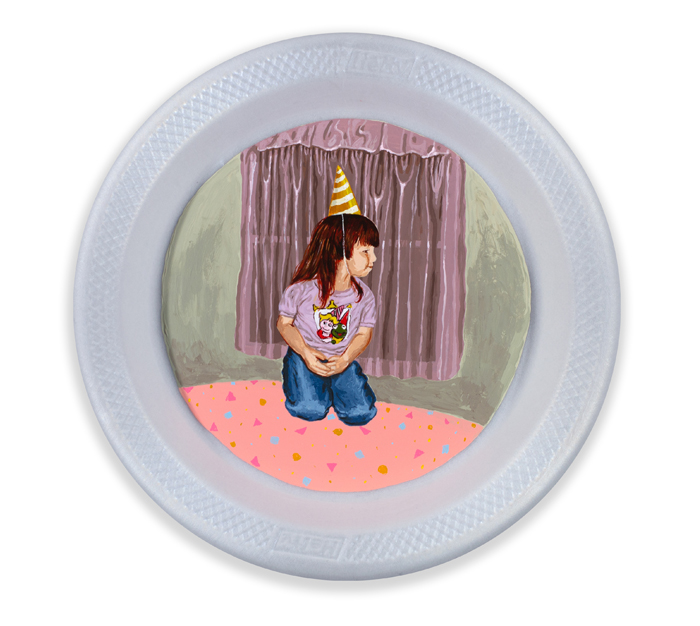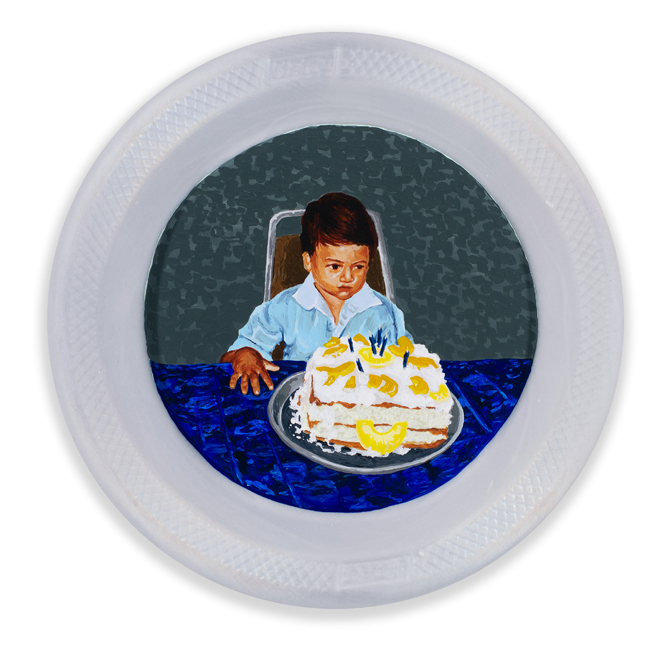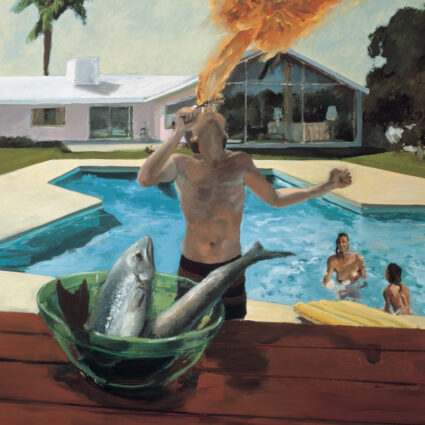Fernando Andrade, an artist based in San Antonio, paints vibrant scenes of Latinx fiestas on styrofoam plates, reclaiming the material as a transmitter of joyful origins rather than disposable mementos.
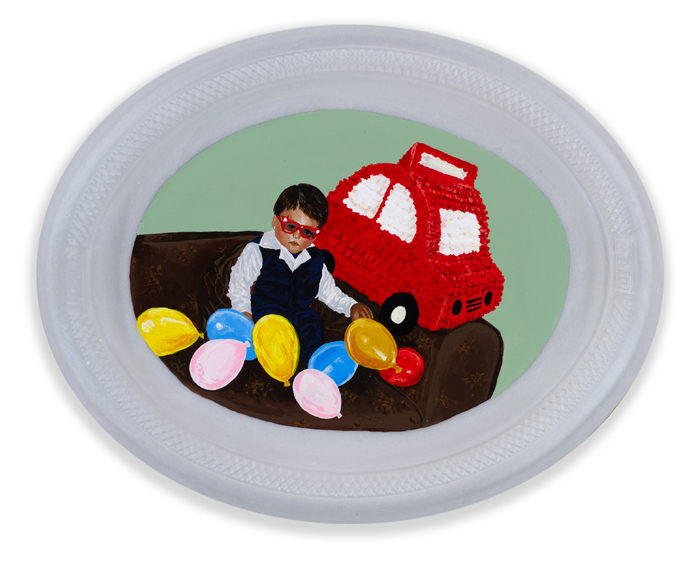
In his painting, drawing, and mixed-media artworks, Fernando Andrade contemplates his cross-cultural roots, straddled between his birthplace of Acuña, Mexico, and his hometown of San Antonio, Texas. On the one hand, his representational drawings show how various exchanges between the U.S. and Mexico intimately shape subjectivity and social-political discourses regarding border violence, gun culture, and mental health. On the other hand, his improvised, abstract paintings meditate on freedom, fantasy, and futurity.
Andrade’s work often delineates border town dystopia marked by drug cartel brutality and the U.S. threat of border closure. Nevertheless, he remains hopeful that hybrid and intercultural intimacies will flourish. For instance, Andrade’s La Ruta (the Route) (2019), a series of graphite illustrations of Mexican long-distance buses, reminds us of the long-standing familial and social relations bestriding national partitions. Additionally, in his series American Portrait (2019-21), Andrade critiques myopic notions of “American-ness” by portraying his father through drawings of his father’s construction tools. These unconventional portraits emphasize his father’s value as a human through his labor, often overlooked by the same American community he helped build.
In his latest series, Homemade Cakes and Piñatas (2022), Andrade paints vibrant scenes of Latinx fiestas from his childhood onto styrofoam plates, invoking nostalgia for the homemade dishes served at such gatherings. To this end, Andrade reclaims styrofoam as a transmitter and conserver of his joyful origins instead of a meaningless, disposable memento of wasteful human society.
As the series title indicates, Andrade depicts children in relation to cakes and piñatas that commemorate fleeting youthfulness. Both the interior and exterior surroundings feel sequestered. In Piñata de Unicornio (2022), a solitary child in a rainbow tutu strikes an equally prismatic unicorn piñata in a deserted concrete courtyard. An unshakeable pathos colors Andrade’s effervescent recollections, demonstrating how feelings of isolation and disconnection during the COVID lockdowns of 2020 inspired desires for community and celebration. Indeed, a painful mix of jubilation and melancholy weave through much of Andrade’s work as he searches for a place to establish himself among diverse cultural influences that compose a world symbolically split in half by an imagined but brutally enforced demarcation line between nations.
San Antonio, Texas | fernandoandradeart.com | @andrade.artist | represented by Gerald Peters Contemporary
